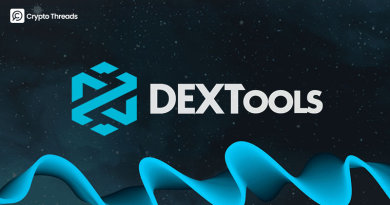Private Credit Powers $24B RWA Tokenization Surge: Ethereum Dominance
Key Takeaways:
- Private credit leads $24B tokenized RWA market with $14B in assets
- Market grew 380% since 2022, excluding stablecoins
- Ethereum maintains 59% market share with $7.5B in tokenized value
- Yields range 8-12% for tokenized private credit products
- Institutional adoption accelerating across multiple blockchain platforms
The tokenized Real-World Assets (RWA) market has reached a remarkable milestone, crossing $24 billion in value by mid-2025. This represents an extraordinary 380% growth since 2022, establishing RWA tokenization as one of crypto’s fastest-growing sectors. Leading this transformation is private credit, which now commands over half the market with $14 billion in tokenized assets.
RWA tokenization market growth Source: RedStone Research
Private Credit Emerges as RWA Market Leader
Private credit has evolved from a traditional institutional investment vehicle to the dominant force in blockchain-based asset tokenization. Unlike traditional Treasury bills that dominated early RWA discourse, private credit offers investors significantly higher yields ranging from 8% to 12%, according to RedStone’s comprehensive market analysis.
The appeal of tokenized private credit lies in its ability to democratize access to institutional-grade investments. Previously reserved for large institutional investors, these high-yield opportunities are now accessible through fractional ownership and enhanced liquidity mechanisms enabled by blockchain technology.
Private credit market structure Source: Cambridge Associates
Ethereum Maintains Blockchain Dominance Despite Competition
Ethereum continues to dominate the tokenized RWA landscape, hosting approximately $7.5 billion across 335 products, representing 59% of the total market. This dominance persists despite the emergence of faster, more scalable blockchain alternatives.
The network’s institutional appeal received a significant boost with the launch of Etherealize in January 2025, the Ethereum Foundation’s strategic marketing initiative to attract institutional participation. This effort has reinforced Ethereum’s position as the “institutional standard” for RWA tokenization.
Ethereum blockchain network topology Source: ResearchGate
Emerging Blockchain Competitors Gain Traction
While Ethereum maintains its leadership, several blockchain networks are positioning themselves as viable alternatives:
Solana has emerged as a “high-performance challenger,” particularly in the tokenized Treasury market, hosting $351 million in tokenized assets. Its fast transaction speeds and lower costs appeal to institutions seeking efficiency.
Aptos has attracted $349 million in tokenized assets and notably became the first non-Ethereum Virtual Machine network to host BlackRock’s BUIDL fund, demonstrating growing institutional confidence in alternative platforms.
Avalanche now hosts $188 million in tokenized assets, including KKR’s tokenized fund, while XRP Ledger has emerged as a “regulated newcomer” with $157 million in tokenized RWAs.
Blockchain technology market distribution Source: Grand View Research
Institutional Adoption Drives Market Transformation
The tokenization boom reflects broader institutional adoption of DeFi infrastructure. Major financial institutions like BlackRock and Franklin Templeton have entered the space, while specialized players like Apollo’s ACRED fund demonstrate the maturation of tokenized private credit products.
This institutional influx brings several advantages: enhanced settlement speed, improved liquidity, lower barriers to entry, and fractional participation capabilities that traditional private credit markets historically lacked. The result is a more accessible and efficient market structure that benefits both issuers and investors.
Global tokenization market expansion Source: MarketsandMarkets
Future Market Outlook and Investment Implications
The rapid growth trajectory suggests tokenized RWAs are transitioning from experimental use cases to mainstream institutional tools. Private credit’s dominance indicates investor appetite for yield-bearing products in a digital format, particularly as traditional fixed-income yields remain volatile.
Key factors driving continued growth include regulatory clarity, institutional infrastructure development, and the maturation of DeFi protocols capable of handling institutional-scale transactions. The integration of traditional finance with blockchain technology appears increasingly inevitable as efficiency gains become apparent.
The $24 billion milestone represents just the beginning of a broader transformation in how traditional assets are structured, traded, and accessed. As blockchain infrastructure continues to mature and regulatory frameworks solidify, the tokenized RWA market is positioned for sustained expansion across multiple asset classes.



